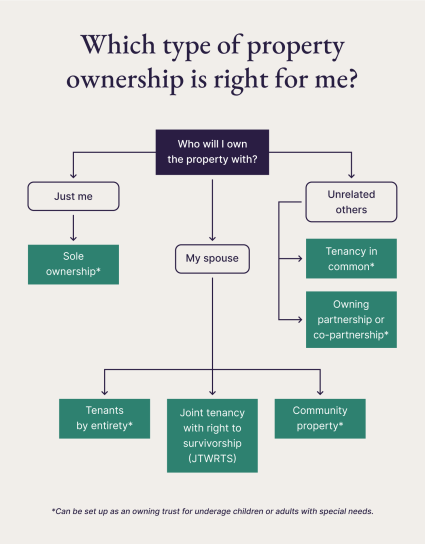45 best family vacation spots of 2024 + how to pack
Looking for the perfect place to unplug with your family? Look no further — we’ve curated a list of the 45 best family vacation spots in the U.S. From waterside destinations to urban jungles, browse our list of Best family vacation spots on the water It’s hard to beat a vacation as relaxing as lounging at a To that end, the best family vacation spots on the water all have excellent shoreline access along with a variety of family-friendly activities. 1. San Diego, California San Diego is known for its amazing year-round weather, consistently putting it near the top of the list for vacation ideas. Take advantage of the temperate climate by filling your days with outdoor activities. Visit Balboa Park is home to 17 museums and performing arts venues, multiple gardens perfect for picnics and the the world-renowned 2. Branson, Missouri Billed itself as the live entertainment capital of the world, Branson is packed with options, from comedy and music to magic and dance performances. Visit the 1880s theme park 3. Outer Banks, North Carolina If you’re looking for a good mix of simplicity and entertainment in your family vacation destination, you’ll find it in the Outer Banks of Although the beaches are the primary attraction, there are plenty of other activities to explore. With four locations, the 4. Orlando, Florida Orlando stands out as one of the top family vacation spots, offering an enchanting blend of world-class attractions and magical experiences for visitors of all ages. At the heart of Orlando's allure is With iconic theme parks like Magic Kingdom, Epcot, Disney's Hollywood Studios and Disney's Animal Kingdom, families can immerse themselves in a captivating world of beloved characters, thrilling rides and enchanting performances. 5. Cape Cod, Massachusetts Beyond the beaches, historic towns such as Provincetown, Chatham and Hyannis exude charm with their cobblestone streets, art galleries and seafood restaurants. Families can embark on whale-watching excursions from Provincetown, explore the Cape Cod Maritime Museum in Hyannis or take a scenic bike ride along the Cape Cod Rail Trail. 6. Destin, Florida For a break from the beach, families can explore the 7. Gulf Shores, Alabama Gulf State Park, with its miles of trails, a fishing pier and a golf course, offers a diverse range of outdoor activities for families looking to explore the area's natural beauty. The area is not just about beaches; it's also a haven for wildlife enthusiasts. Families can visit the dunes and shoreline of 8. Myrtle Beach, South Carolina Myrtle Beach is renowned for its family-friendly atmosphere, with numerous resorts and hotels catering to their needs. The iconic For those seeking a break from the beach, Broadway at the Beach offers an entertainment complex with attractions like 9. Miami Beach, Florida If your family gets their fill of sand, check out the eco theme park 10. Hilton Head Island, South Carolina Kids of all ages can experience the fun of 11. Maui, Hawai’i Whether you are looking for adventure or relaxation, Just because you’ll be on an island does not mean there aren’t options for a road trip. 12. Mackinac Island, Michigan Mackinac Island is stubbornly resistant to change, and that’s exactly what makes it one of the top places to go on vacation from late spring to late fall. This small island off the tip of Northern Michigan boasts no cars and no chain hotels, but being small doesn’t mean there’s not a lot to enjoy. Access the island by ferry and travel around by foot, bicycle or horse-drawn carriage. Stay at the historic 13. Wisconsin Dells, Wisconsin This central Wisconsin city offers plenty of thrills for all ages — indoors and out. Book a stay in a resort with an attached waterpark for added convenience, or visit the largest outdoor waterpark in the country at After your fingers have pruned, take a river tour on the amphibious WWII Duck boats or enjoy an amazing water skiing show. Don’t forget to stay energized with a hearty all-you-can-eat breakfast at 14. Lake Tahoe, California Sometimes overshadowed by its winter mountain activities, For a more leisurely excursion, spend your day on the lake and appreciate its stunning blue water. Rent a boat, kayak or paddleboard for different activity levels and experience. You’ll also have the option to take the whole family into the air with a hot air balloon ride over the lake. 15. Sandusky, Ohio Sandusky is synonymous with its main attraction — If your family members aren’t crazy about roller coasters, it doesn’t mean they’ll have a lack of activities to enjoy while in Sandusky. There is also the option to go on a Lake Erie cruise, visit the merry-go-round museum or spend the day at one of Sandusky’s waterparks. 16. Finger Lakes, New York The Finger Lakes are known for pristine landscapes that afford visitors all the water activities one could hope for. The area is surrounded by multiple state parks with dozens of waterfalls. Many are accessible by trails that are easy to walk with your family. Outside of its own water and amusement parks, the Finger Lakes also has several museums that will keep your kids entertained. 17. Chicago, Illinois The third-largest city in the United States is a hard spot to overlook when considering the best family vacation spots. With Chicago’s size comes many options for entertainment, including on its waterfront. It offers ample beaches along Lake Michigan and multiple river tours to learn about the city’s history. Best family vacation spots in the desert If you want to avoid crowded beach towns while still getting as much sun as possible, the desert might be up your family’s alley. Deserts feature wide-open spaces, picturesque photo opportunities and loads of outdoor activities. Just be sure to include plenty of sun protection on your packing list. 18. Sedona, Arizona The best family vacation spots provide experiences that can’t be replicated anywhere else, and Aside from its natural beauty, Sedona also features the 19. Albuquerque, New Mexico Every October, hundreds of hot air balloons gather in Albuquerque for its Albuquerque’s passion for dancing and food is always center stage. Dine on classic New Mexican cuisine and discover your preference for green or red chiles. Attend a flamenco show or, better yet, take a flamenco workshop. Be sure to stop by the 20. Glen Rose, Texas We can’t mention dinosaurs without including Glen Rose in the list. This small town is home to At 21. Grand Canyon, Arizona The Securing accommodations around the canyon is highly competitive. Make reservations more than a year in advance for camping and waterfall excursions. 22. Joshua Tree National Park, California Camping within the park is possible with a reservation, but there are also campsites nearby that are quality options. Stargazing in the middle of the desert is an experience your kids will never forget — especially if they are only familiar with bright city skies. 23. Scottsdale, Arizona Scottsdale’s Old Town district is home to a number of art galleries. For the Thursday night 24. Palm Springs, California Architecture enthusiasts will have their fill in Unlike some other desert locations on this list, 25. Moab, Utah If any family members are in their dinosaur phase, Moab is one of the must-visit places to travel with kids. After you’ve explored on your own, jump into a Hummer for an offroad tour of Moab’s awe-inspiring backcountry. Or enjoy the thrill of Erafting through a canyon on the Colorado River. 26. Big Bend National Park, Texas Whether you’re seeking adventure or relaxation, Give your children the opportunity to experience ancient plant and animal life in Big Bend’s own fossil discovery exhibit. After you’ve quenched your thirst for adventure, dip in Big Bend’s hot springs. The water is naturally 105 degrees Fahrenheit and has long been considered therapeutic. 27. Santa Fe, New Mexico Santa Fe is brimming with culture and activities, making it one of the best family vacation spots. Spend the day at the Fans of the psychedelic will love the child-friendly interactive art installation Best family vacation spots in the mountains Some best family vacation destinations are in the mountains, offering unique activities for every season. While many people love the mountains for their winter ski resorts, the rest of the year offers new opportunities to connect with the terrain. 28. Jackson Hole, Wyoming But there are 29. Black Hills, South Dakota The The Badlands are a sight to behold, consisting of 244,000 acres of rugged spires and mixed-grass prairie. Visit 30. White Mountains, New Hampshire The In the winter, check out one of many ski resorts and visit the 31. Yellowstone National Park, Wyoming The park offers over 1,000 miles of backcountry trails and bears, bison, wolves and elk all roam freely. Bird watchers can see more than 300 species of birds. 32. Yosemite National Park, California Yosemite has an abundance of waterfalls to explore, including some with paved trails for easy access. Horseback riding provides another option to hit the trails. — and you can watch the leaves change if you make this a 33. Aspen, Colorado Like Jackson Hole, In warmer months, Aspen has some of the best fly fishing conditions in North America. Appreciate the scenery by putting on your waders and trying to catch a prized trout. For history lovers, take a walking tour of the former silver mining town, offered by the 34. Gatlinburg, Tennessee Gatlinburg pairs Southern charm with major attractions. If your family vacation ideas include shopping, hiking and amusements, look no further than this Smoky Mountains gem. Take advantage of Gatlinburg’s close proximity to the Appalachian Trail by Visit the top-rated 35. Park City, Utah If you’re wondering where to go on vacation, When summer comes around, you can golf, paddleboard and ride the Alpine Coaster. Visit the 36. Glacier National Park, Montana With a mix of melting glaciers, alpine meadows,and spectacular lakes and waterfalls, The Going-to-the-Sun Road, a 50-mile road that bisects the park when conditions allow, provides scenic views that are hard to beat. The park offers ample opportunities for rafting, kayaking and horseback riding. And when your day’s activities are over, comfortable accommodations are available inside and outside the park — reserve early! 37. Catskill Mountains, New York The Catskill Mountains have been one of the best family vacation spots for city dwellers for over 100 years. Families seeking a break from city hustle can relax in this historic area's natural beauty. No wonder it’s one of the Your family can explore caves going 156 feet into the earth, raft down the Delaware River, visit the Best family vacation spots in the city If long road trips don’t agree with your family, checking a major city off your to-do list may be a good alternative. Cities are jam-packed with options for everyone’s taste. Education, amusement and active adventures await. 38. San Francisco, California If the chaos of Disneyland seems a little too much for your family vacation, take a trip to San Francisco. The 39. New Orleans, Louisiana Introduce your children to jazz at 40. Nashville, Tennessee Nashville has long been the hot spot for country music aficionados, but it has recently been growing in popularity for the general public, too. Take a tour of the Stop by 41. New York City, New York The city may never sleep, but your family surely will after a day packed with some of these family vacation ideas. Get amazing views from iconic structures like the See a collection of the world’s greatest artwork at the 42. Austin, Texas Proud to be weird, Austin has all the oddities and entertainment someone could hope for a family vacation. The Cathedral of Junk shows kids how a little imagination can turn trash into a work of art. Kayak to Congress Avenue Bridge to watch over a million bats fly at sunset. Take your kids for a dip in the naturally spring-fed pool at 43. Seattle, Washington Seattle offers loads of family-friendly attractions. Seattle Center, built for the 1962 World’s Fair, is home to the iconic If you’re looking to squeeze a little nature into your trip, head to Mount Rainier for hiking or take a whale-watching excursion. Shop at the historic 44. Denver, Colorado Denver is great to visit at any time, thanks to its more than 300 sunny days each year. 45. Minneapolis, Minnesota Minnesota has big city recognition paired with a small city feel. The If you’re considering
Read



















